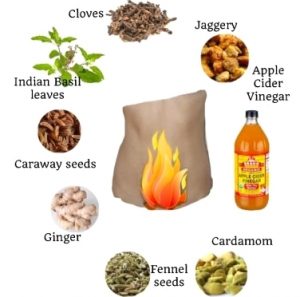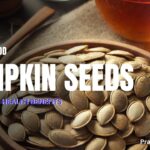Ayurveda for hyperacidity treatment is more effective. Hyperacidity (Amlapitta) is one of the most usual disease seen in the people. Cool infusion of coriander seeds, Tender coconut water , Powder of Shatapushpa (Fennel seeds), fennel seeds are best home remedy
Hyperacidity (Amlapitta) is one of the most usual disease seen in the people. It is seen in all ages, all classes, and all community. Hyperacidity referred to some of the symptoms affected due to imbalance among the acid discharging mechanism of the abdominal and proximal intestine and the protective mechanisms that guarantee their wellbeing. The abdominal generally discharges acid that is necessary in the digestive process. When there is excess production of acid in the stomach, it results in the condition known as acidity.


‘Hurry’, ‘Worry’, and ‘Curry’ are the three main reasons for the disease.
Diet (Ahara):
1. Spicy food habits.
2. Excessive use of chilly, cinnamon, clove, mustard, garam masala powder (spice mixture), garlic etc. in diet.
3. Salty and sour foods like chips and pickles.
4. Eating of stale, fermented foods (dosa, idli etc. bakery food items).
5. Excessive intake of fast food.
6. Excessive intake of oily foods, pickles.
7. Intake of food and beverages in excess hot condition like soups and alcohol.
8. Excessive intake of tea/coffee.
9. Lesser intake of water, dry food.
10. Irregular meal times.
11. Repeated food intake (before the digestion of the previously taken food).
12. Incompatible food like taking non-veg., pizza followed by milk shakes, sour curd with sugar etc.
13. Skipping meals.
14. Eating too late at night.
Regimens (Vihara):
1. Lack of rest, fast moving lifestyle.
2. Insufficient sleep at night.
3. Sleeping immediately after meals.
4. Suppression of natural urges.
5. Excessive exposure to sun and fire (too much of heat).
Mental factors:
1. Stressful life style.
2. Excessive anxiety, worry, jealousy, anger, fear.
3. Job dissatisfaction.
4. All the above factors result in excessive increase of ‘Pitta dosha’ in body and exhibits symptoms of amlapitta/ hyperacidity.
Signs and symptoms:
1. Heart &chest burn (retrosternal burning).
2. Sour or bitter belching.
3. Nausea.
4. Throat burn.
5. Regurgitation of food or sour substance.
6. Vomiting.
7. Gaseous distention of abdomen.
8. Heaviness in abdomen.
9. Indigestion.
10. Aversion towards food.
11. Pain abdomen.
12. Chest pain.
13. Headache.
14. Bad breath.
15. Foul smelling loose motions.
16. Severe burning sensation over feet, hands.
17. Thirst.
18. Mouth ulcer.
19. Fatigue (especially in legs).
20. Tiredness.
21. Fainting.
22. Giddiness.
23. Itching all over the body
Prevention:


As the saying goes “Prevention is better than cure” it is better to avoid all the causative factors of acid-peptic disorder (amlapitta).
1. keep away salty, oily, sour and spicy foods.
2. Avoid heavy and untimely food.
3. Avoid smoking and alcohol intake.
4. Food should consist mainly of bitters like bitter gourd, matured ash gourd.
5. Include barley, wheat, old rice and green gram in diet.
6. Avoid overcooked, stale and contaminated food.
7. The food must be properly cooked.
8. Follow mental relaxation techniques.
Medical management:
Line of treatment:
1. Avoid causative factors.
2. Palliative treatment – As the disease is of Pitta origin, all measures are undertaken to pacify pitta.
3. Panchakarma management – When patients cannot be treated only with oral medications ‘Panchakarma procedures’ like Vamana (emesis) or virechana (purgation) is administered based on the conditions.
In chronic cases basti (medicated enema) is indicated.
Domestic Remedies:
1. The cool infusion of coriander seeds taken with little sugar twice a day.
2. Tender coconut water 100-500 ml to be taken twice a day.
3. Powder of Shatapushpa (Fennel seeds) with sugar mixed in a glass of water – 20 ml twice daily for 1 week or till the symptom subsides.
4. Chewing of half a teaspoon of fennel seeds after food.
Do’s and Don’ts:
Do’s (Pathya):
1. Follow the meal times.
2. Light food, Coconut water, foods having cooling (not to be mistaken for cold) properties.
3. Vegetables like white pumpkin, bitter gourd, matured ash gourd, leafy vegetables, methi.
4. Wheat, old rice, barley, green gram.
5. Fruits like gooseberry, dry grapes, sweet lime, pomegranate, fig.
6. Take adequate amount of fluids like milk, pomogranate juice, watermelon juice.
7. Medicated water with usheera (lavancha) or coriander seeds, or laja (haralu).
8. Gulkand (jam made from rose petals) with milk.
9. A cup of lukewarm milk after every two or three hours.
10. One teaspoonful of ghee with warm milk
11. Take adequate sleep & rest.
12. Practice Yoga, Pranayama, meditation & exercise regularly.
Don’ts (Apathya)
1. Avoid excessive spicy, sour and salty substances.
2. Avoid fried and junk food items.
3. Do not remain hungry. Avoid fasting often.
4. Do not overeat, take small frequent meals.
5. Avoid untimely and irregular food habit.
6. Avoid foods containing excess amount of garlic, salt, oil, chillies, etc. very often.
7. Avoid sour curd, sour buttermilk andsour fruits.
8. Avoid lying down immediately after food and in supine position. The best recommended position is left lateral.
9. Avoid, smoking, alcohol, tea, coffee and aspirin type drugs (unnecessarily).
10. Avoid stress, aggressive behaviour and haphazard working habits.


Dr. Nitin V.
Panchakarma Specialist, Dept. of Panchakarma
S.D.M Institute of Ayurveda and Hospital, Bengaluru
dr.nitin.v.89@gmail.com Mob: +91 99018 65656











